
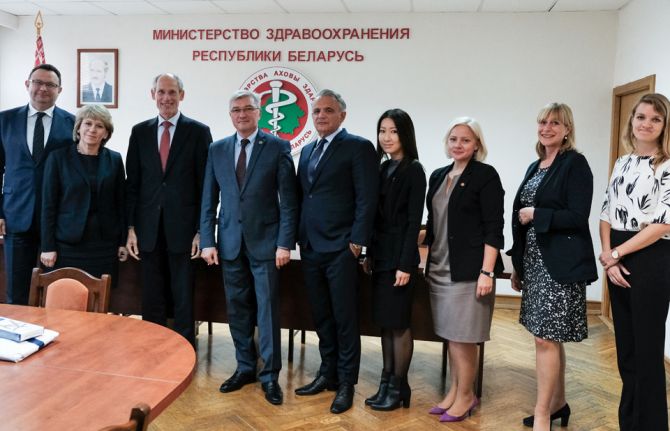
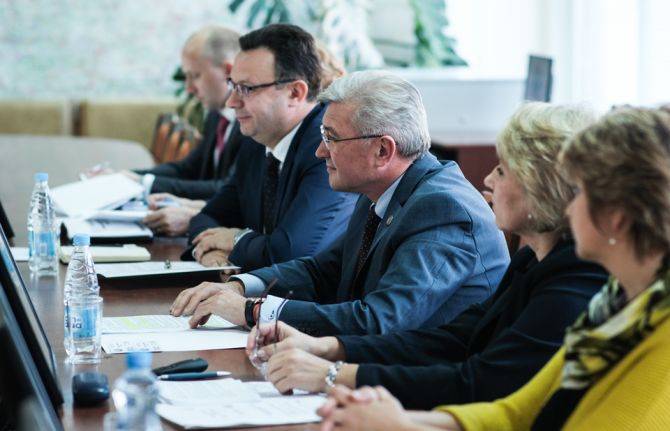
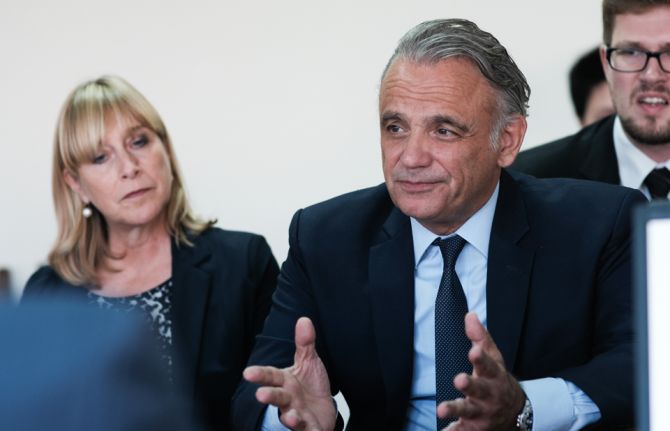
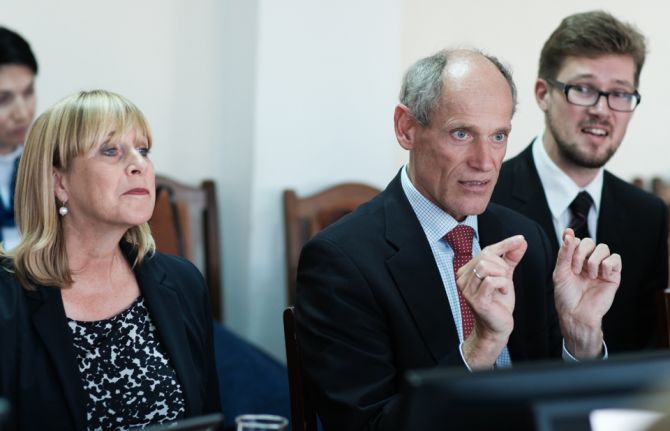
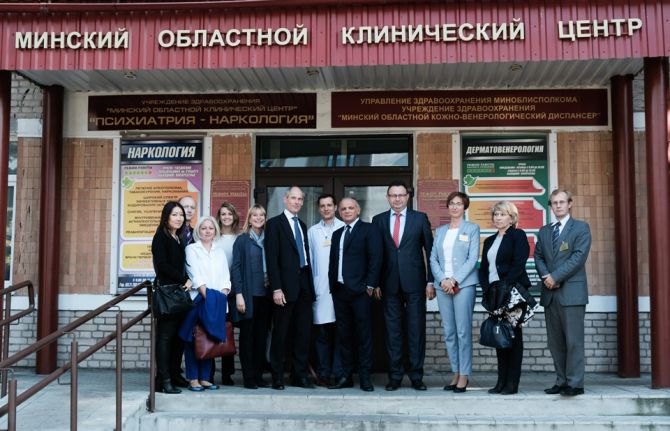
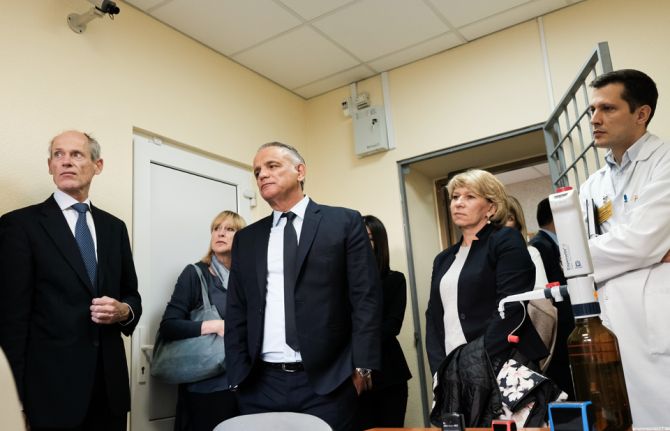
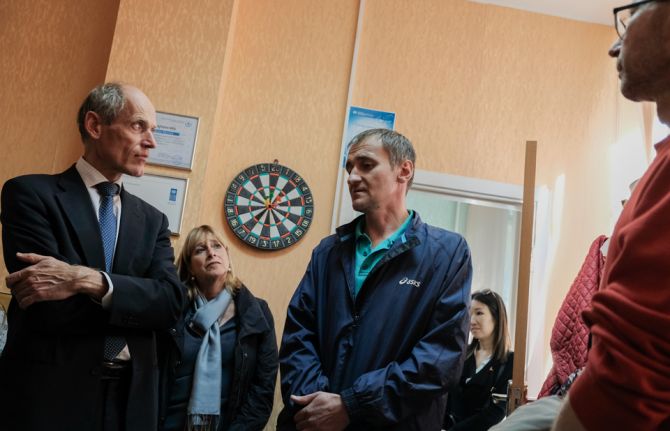
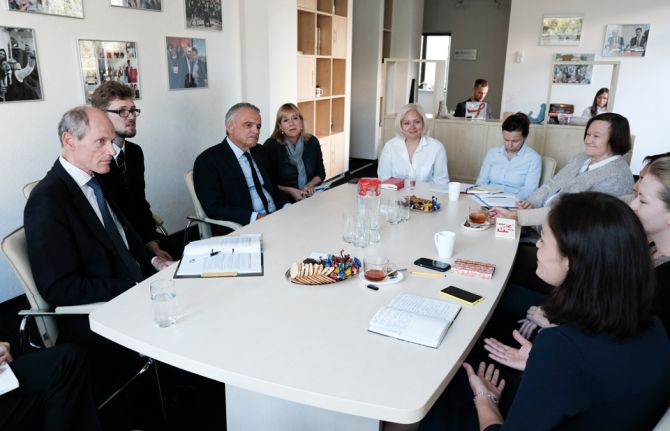

Update
Governments of Belarus and the Netherlands exchange best practices
29 September 2017
29 September 2017 29 September 2017During a two-day visit on 25 and 26 September to Belarus, UNAIDS Deputy Executive Director Luiz Loures and the Ambassador for Sexual and Reproductive Health and Rights & HIV/AIDS of the Netherlands, Lambert Grijns, met with civil society organizations and communities of people who inject drugs, women living with HIV, men who have sex with men and sex workers to hear their perspectives on the current needs and challenges of the AIDS response in the country.
Mr Loures and Mr Grijns also met with the Minister of Health of Belarus, Valery Malashko, and the First Deputy Minister of Health, Dmitry Pinevich, to discuss the HIV epidemic in the region and exchange best practices on the AIDS response in western and eastern Europe, particularly around prevention policy and programme implementation. Potential collaboration between the Netherlands and Belarus was also discussed.
During the meeting, Mr Loures acknowledged the efforts of Belarus in scaling up its AIDS response using domestic resources. The country is on track to achieving the 90–90–90 targets by 2020 and is committed to expanding HIV prevention programmes, including programmes for key populations.
Mr Grijns noted the achievements of Belarus in harm reduction, reducing the cost of antiretroviral treatment and eliminating mother-to-child transmission of HIV. He also commended the close collaboration with civil society and that domestic funds would be provided to nongovernmental organizations, ensuring continuity of community outreach and service delivery.
Quotes
“From a health perspective and as European partners, we need to see what we can do together, focusing on key populations and young people.”
“It is very important to recognize and facilitate best practices in Belarus and for them to be spread to the rest of the region.”
“We have gone a long way to achieving success, but to reach the goals of reducing new HIV infections, reducing AIDS-related deaths and eliminating HIV-related stigma and discrimination by 2020 will take more organizational and resource mobilization efforts. It is our joint task to achieve those targets.”
Region/country
Related
 Women, HIV, and war: a triple burden
Women, HIV, and war: a triple burden

12 September 2025
 Displacement and HIV: doubly vulnerable in Ukraine
Displacement and HIV: doubly vulnerable in Ukraine

11 August 2025

